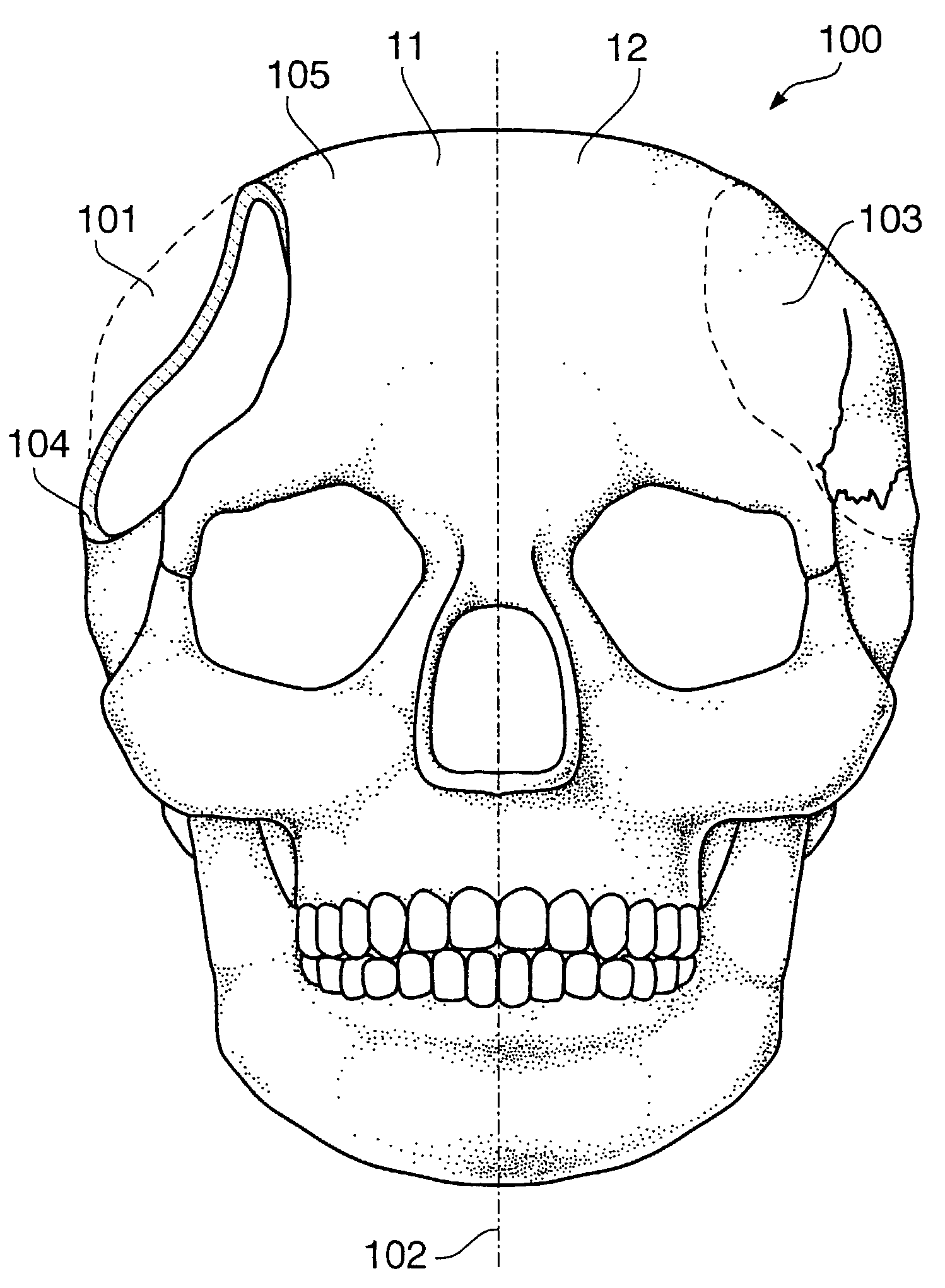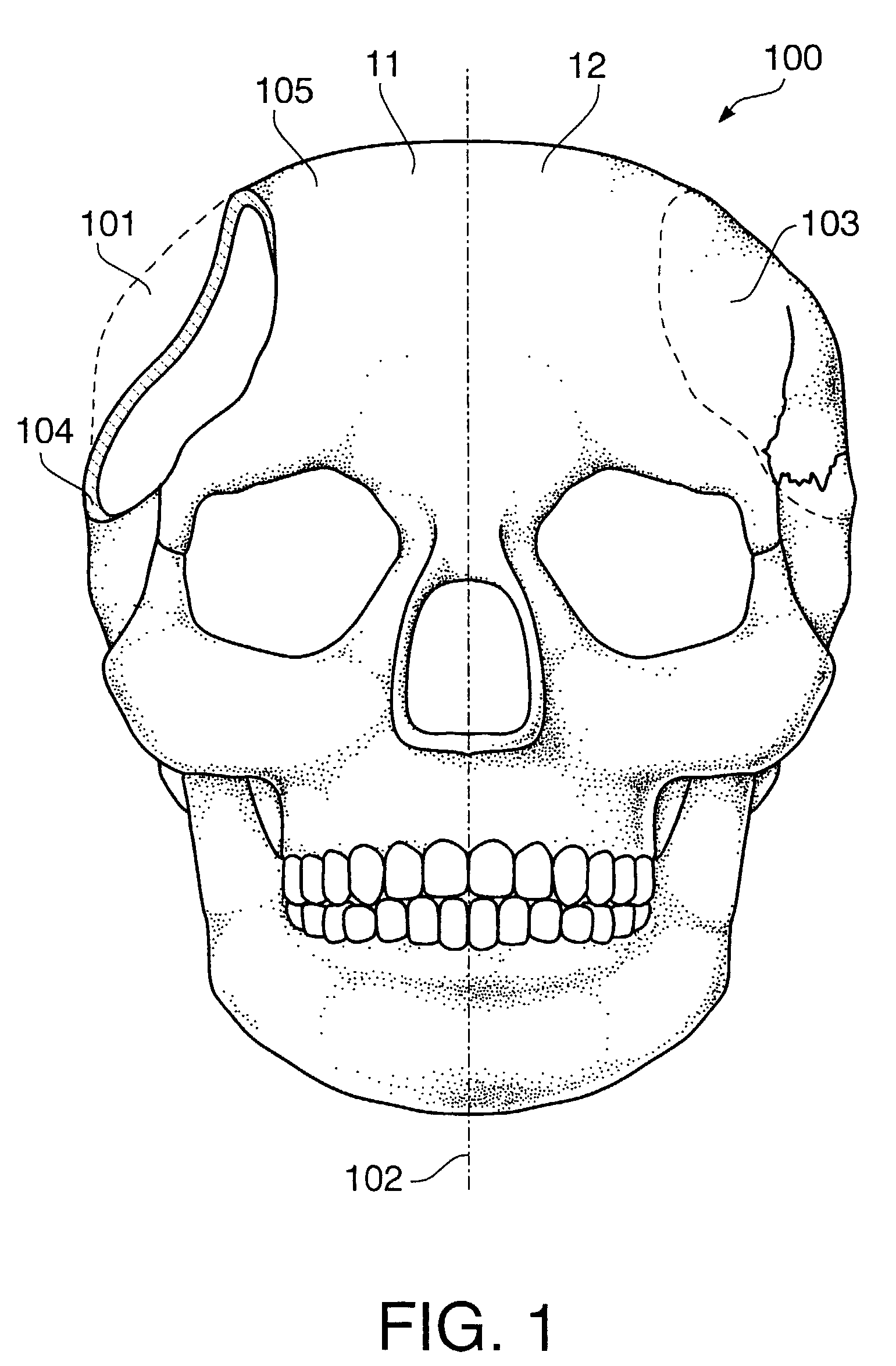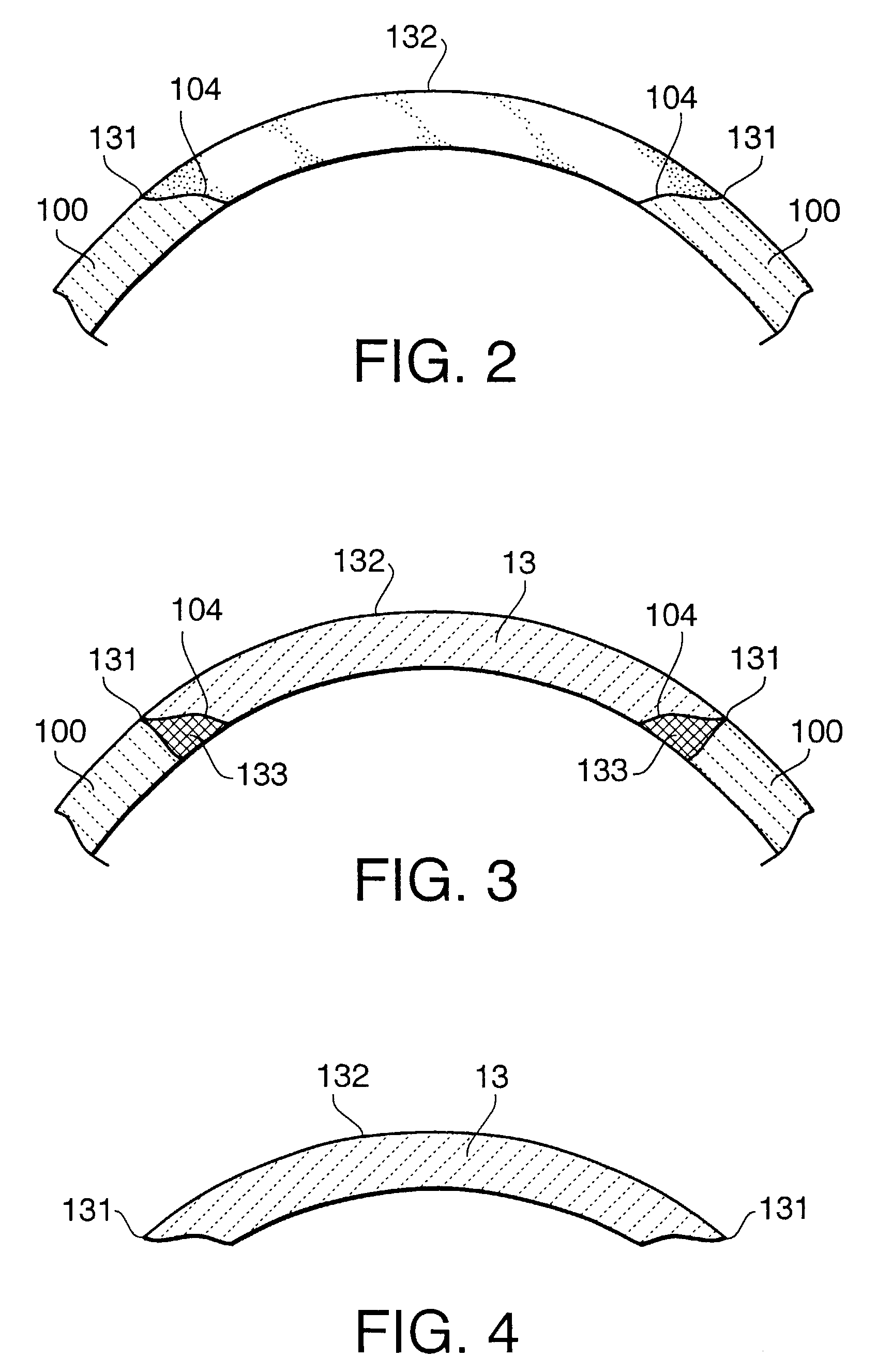Implant forming method
a three-dimensional, implant technology, applied in the direction of additive manufacturing process, total factory control, programme control, etc., can solve the problems of insufficient reproductivity, difficult to achieve high reproductivity, and difficult to accurately form the bone body with the deficient portion, etc., to achieve excellent reproductivity of the missing portion of the bon
- Summary
- Abstract
- Description
- Claims
- Application Information
AI Technical Summary
Benefits of technology
Problems solved by technology
Method used
Image
Examples
Embodiment Construction
[0049]Hereinafter, a method of forming a three-dimensional implant according to an embodiment will be described with reference to the accompanying drawings.
[0050]FIG. 1 shows an image of body of bone (i.e., skull) generated in accordance with three-dimensional data, which is generated based on a plurality of pieces of tomography data. FIG. 2 is a drawing showing a condition where outer surface shape data of a bone that should exist at a bone deficient portion is overlapped with the bone deficient portion, FIG. 3 is a drawing showing a condition where bone deficient portion data with a predetermined thickness is overlapped with the bone deficient portion, and FIG. 4 is a drawing showing bone deficient portion data that has been processed so as to match with the bone cutting surface throughout the entirety in the direction of thickness of the bone. In FIG. 2 through FIG. 4, the upper side shows the outer surface side of the bone three-dimensional data, and the lower side shows the inn...
PUM
| Property | Measurement | Unit |
|---|---|---|
| distance | aaaaa | aaaaa |
| distance | aaaaa | aaaaa |
| distance | aaaaa | aaaaa |
Abstract
Description
Claims
Application Information
 Login to View More
Login to View More - R&D
- Intellectual Property
- Life Sciences
- Materials
- Tech Scout
- Unparalleled Data Quality
- Higher Quality Content
- 60% Fewer Hallucinations
Browse by: Latest US Patents, China's latest patents, Technical Efficacy Thesaurus, Application Domain, Technology Topic, Popular Technical Reports.
© 2025 PatSnap. All rights reserved.Legal|Privacy policy|Modern Slavery Act Transparency Statement|Sitemap|About US| Contact US: help@patsnap.com



